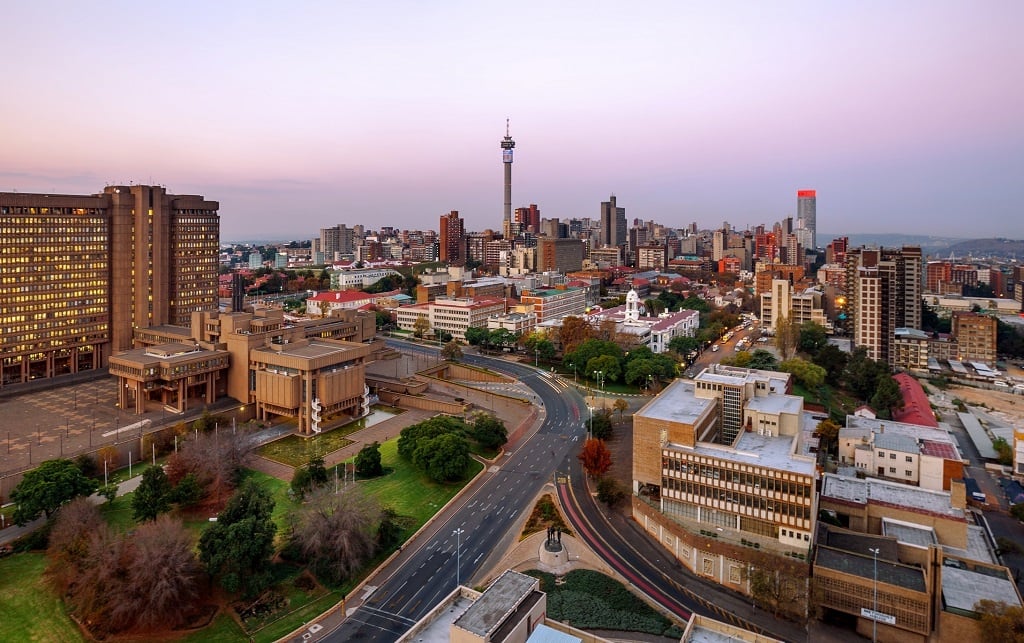
- President Cyril Ramaphosa and government officials have said the SA economy should be more inclusive as it recovers from Covid-19.
- 350 Africa and the Institute for Economic Justice have issued a report that includes addressing social inequalities as part of heading towards a decarbonised economy.
- It proposes increasing public ownership, protecting people from exploitation, and responding to the climate crisis.
President Cyril Ramaphosa and other government officials have spoken of the importance of using the Covid-19 crisis to restructure the economy to be more inclusive. Non-profit organisations 350 Africa and the Institute for Economic Justice have put out a report laying out their version of what that means - and their primary concern is prioritising people over profit.
The report, No going back to normal: A just recovery in SA, argues that SA needs a strategy that addresses factors that have led to both inequalities and ecological damage.
So far, government has said that plans to revive economic growth involved a massive infrastructure development programme, including 276 infrastructure projects. Government has already committed R100 billion over 10 years for this fund. Treasury also recently released a draft technical paper on financing a more sustainable economy. It indicated that government intends to "mobilise" private sector funding for sustainable projects, which was echoed by Finance Minister Tito Mboweni said during the tabling of the special adjustment budget in June.
"Treasury is seeking to protect the economy and unlock economic opportunities that will enhance the country's ability to adapt to the rapidly changing climate and realise socio-economic benefits from the transition to a lower carbon, greener economy…" the document read.
Last week, Treasury head of tax and financial sector policy Ismail Momoniat participated in a discussion hosted by the International Conservation Caucus Foundation on a green stimulus package, for a post Covid-19 South Africa. he explained that the green economy has "huge potential to unlock" in the form of new markets and employment creation.
He warned that the Covid-19 crisis should not stall efforts to act on climate change. "I think we must guard against the Covid-19 emergency delaying us from taking action on the green front. It's a clock that is ticking and time is not on our side."
But what does this mean in practice?
In its report, 350 Africa outlines a vision for an economy that meets basic social needs, addressing power dynamics to protect people from exploitation, and increasing public ownership so as not to have wealth concentrated with an elite few. It calls for a recovery which would make the country resilient to future crises, particularly those attributable to climate change.
It sets out six ways this can be achieved:
1. Reclaim and rebuild public services: This involves directing public investment to expand the provision of goods and services – particularly public transport and public housing programmes – in a way that is compatible with a decarbonised economy.
The proposals include electrifying transport networks powered by renewable energy generation, reliable and efficient public transport which encourages people to leave their personal cars at home, public housing designed with low-carbon elements, housing strategically integrated with public transport networks, integrating libraries, theatres and eco-parks into spaces which are widely accessible by the public.
"Both integrated public transport plans and expansive public housing can have transformative effects on society. They can mitigate against spatial inequality," the report read.
2. Complement the green economy with gender equality: The report indicates that the Covid-19 crisis exposed the need for caring labour. Care work is often unpaid, with women bearing the brunt as they take on twice as many care responsibilities as men, the report argued.
"The purple economy socialises care and prioritises support for the most marginalised in the economy by expanding care services and increasing employment for women.
"It also aims to disrupt gender norms about the nature of certain types of work - like caring labour - and see that this work is paid and valued in the economy," the report read.
3. Implement a just transition to low- to zero-carbon energy: While Eskom initially was able to keep loadshedding at bay during the lockdown, last week it lost generating capacity of some units and had to implement power cuts. This came at a time when economic activity and demand was subdued, and could have potentially added more stress to critical sectors.
A transition to renewable energy technologies could ensure reliable and cheaper energy supply than existing coal plants, it put forward. The report highlights the importance of a just transition that does not leave coal-dependent communities in destitute, and to ensure renewable energy is still affordable and accessible to poorer households.
4. Structural transformation, not structural reforms: While Mboweni has called for "structural reforms" to the economy, 350 Africa and the IEJ take it a step further than just addressing market failures and calls for "structural transformation".
This involves improving the labour environment and human capital development – by achieving decent-paying jobs, sustainable employment, higher-skilled work that leads to increasing productivity.
5. Reconfigure domestic power relations: The report calls for the decentralisaiton of ownership - from big corporates or a small group of people who influence policies and decisions - to communities.
"Democratic" public ownership would see assets, enterprises and services owned through co-operatives, communities or workers. Furthermore, these stakeholders should also have decision-making abilities.
6. A new international outlook: A just recovery should not just be limited to domestic changes, but must also be carried out in international relations, the report proposed.
"We need to put in place policies and regulations that change the dynamics of global value chains in order for them to be more equitable and more resilient to climate shocks."
350 Africa will be sending the report to "key officials", with the hopes of having virtual or face-to-face meetings with key agencies to present their recommendations for a post-Covid-19 recovery.




 Publications
Publications
 Partners
Partners











